A game-changer in Africa?
The African Union stands at a crossroads in its history. It needs to change direction to be relevant and show its members the path to prosperity. With Rwandan president Paul Kagame now at the helm, it may have a chance
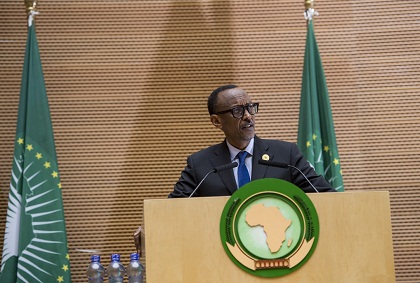 Courtesy: Paul Kagame/ Flickr
Courtesy: Paul Kagame/ Flickr
The African Union stands at a crossroads in its history. It needs to change direction to be relevant and show its members the path to prosperity. With Rwandan president Paul Kagame now at the helm, it may have a chance
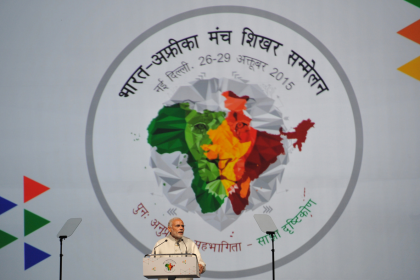 Courtesy: MEA / Flickr
Courtesy: MEA / Flickr
Changes in how India plans to approach its relationship with Africa were evident at the recent India-Africa Forum Summit, including the wider representation of African countries, and Modi’s push to forge a united front with Africa at multilateral institutions on trade and other issues. But beyond these, gaps in the India-Africa alliance remain to be addressed.
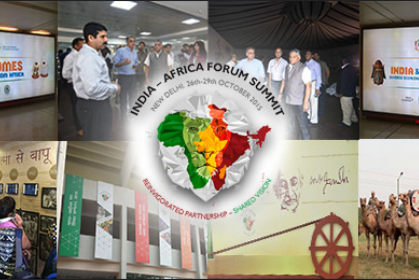 Courtesy: MEA / Flickr
Courtesy: MEA / Flickr
The India-Africa Forum Summit in New Delhi this week has not generated much excitement among African media, academia, and think tanks. But it will be useful for the African bloc to have a strategic game-plan about the Africa-India relationship of the future, across such areas as trade and public health
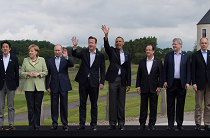 Courtesy: GOV.UK/Flickr
Courtesy: GOV.UK/Flickr
A slumped arms industry and the U.S. shale gas sector will gain from NATO’s threat of stricter sanctions and suspension of Russia from the G8. BRICS has protested, but unless we consolidate alternate international financial structures, even other big economies like India can eventually be the targets of sanctions

A new equation is emerging between the BRICS countries and the informal grouping of the most industrialized economies, called the G8. The G8 has been reduced to G7 following Russia’s suspension. Of late, BRICS have taken an assertive stand against the G8 in economic as well as the geo-political fora
 Courtesy:
Courtesy:
India’s relations with Islamic nations, many of which are members of the Organisation of Islamic Cooperation (OIC), have become even more prolific over the last decade. While India does not visualise becoming a member of a religious international body, many reasons militate against our formally joining the OIC.
Though some countries like Russia gained a strong foothold in Central Asia and the Caucasus post-1991, India has been a late-comer. Gateway House interviews former Ambassador to Azerbaijan Debnath Shaw to discuss India’s energy interests in the region, the Shanghai Cooperation Organization and the TAPI pipeline.
The scope for any process on nuclear talks with Iran to founder on distrust, misunderstanding and political in-fighting in both Tehran and Washington remains formidable. Equally disturbing are the wider political realities. Can the upcoming talks in Istanbul launch a process that can, over time, lead to agreement?
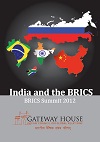 Courtesy: Gateway House
Courtesy: Gateway House
The BRICS nations account for 45% of the world population, 25% of global GDP and 50% of recent global growth, and have the potential to create a future model. In 2012 Gateway House prepared a report that looks at the future of India and its BRICS counterparts
 Courtesy: nazeah/Wikimediacommons - Ramesh Lalwani/Flickr
Courtesy: nazeah/Wikimediacommons - Ramesh Lalwani/Flickr
The year 2011 saw various events - the Arab Spring, anti- corruption protests, Europe's sovereign debt crisis - transform countries and reshape the world order. Gateway House takes a look at what these events mean for India, and presents India's top foreign policy cheers and jeers for the year.